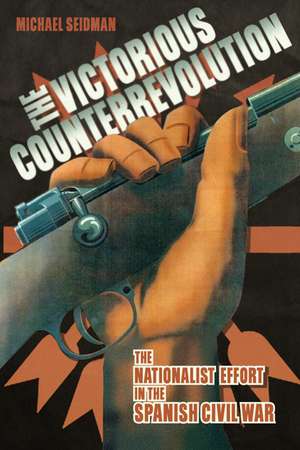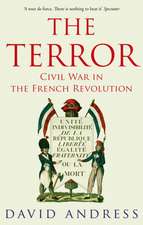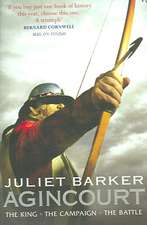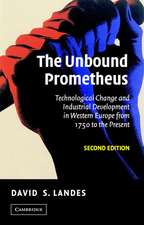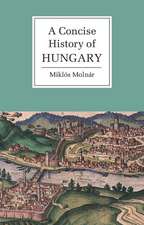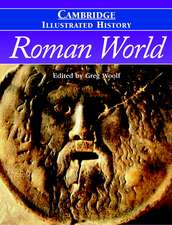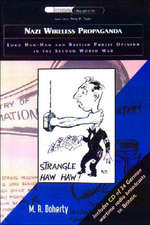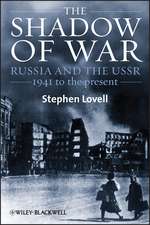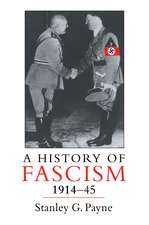The Victorious Counterrevolution: The Nationalist Effort in the Spanish Civil War
Autor Michael Seidmanen Limba Engleză Paperback – 27 mar 2011
This groundbreaking history of the Spanish Civil War (1936–39) examines, for the first time in any language, how General Francisco Franco and his Nationalist forces managed state finance and economic production, and mobilized support from elites and middle-class Spaniards, to achieve their eventual victory over Spanish Republicans and the revolutionary left.
The Spanish Nationalists are exceptional among counter-revolutionary movements of the twentieth century, Michael Seidman demonstrates, because they avoided the inflation and shortages of food and military supplies that stymied not only their Republican adversaries but also their counter-revolutionary counterparts—the Russian Whites and Chinese Nationalists. He documents how Franco’s highly repressive and tightly controlled regime produced food for troops and civilians; regular pay for soldiers, farmers, and factory workers; and protection of property rights for both large and small landowners. These factors, combined with the Nationalists’ pro-Catholic and anti-Jewish propaganda, reinforced solidarity in the Nationalist zone.
Seidman concludes that, unlike the victorious Spanish Nationalists, the Russian and Chinese bourgeoisie were weakened by the economic and social upheaval of the two world wars and succumbed in each case to the surging revolutionary left.
The Spanish Nationalists are exceptional among counter-revolutionary movements of the twentieth century, Michael Seidman demonstrates, because they avoided the inflation and shortages of food and military supplies that stymied not only their Republican adversaries but also their counter-revolutionary counterparts—the Russian Whites and Chinese Nationalists. He documents how Franco’s highly repressive and tightly controlled regime produced food for troops and civilians; regular pay for soldiers, farmers, and factory workers; and protection of property rights for both large and small landowners. These factors, combined with the Nationalists’ pro-Catholic and anti-Jewish propaganda, reinforced solidarity in the Nationalist zone.
Seidman concludes that, unlike the victorious Spanish Nationalists, the Russian and Chinese bourgeoisie were weakened by the economic and social upheaval of the two world wars and succumbed in each case to the surging revolutionary left.
Preț: 197.97 lei
Nou
Puncte Express: 297
Preț estimativ în valută:
37.88€ • 39.66$ • 31.34£
37.88€ • 39.66$ • 31.34£
Carte tipărită la comandă
Livrare economică 07-21 aprilie
Preluare comenzi: 021 569.72.76
Specificații
ISBN-13: 9780299249649
ISBN-10: 0299249646
Pagini: 328
Ilustrații: 11 b-w illus., 4 maps, 6 tables
Dimensiuni: 152 x 229 x 25 mm
Greutate: 0.5 kg
Ediția:1
Editura: University of Wisconsin Press
Colecția University of Wisconsin Press
ISBN-10: 0299249646
Pagini: 328
Ilustrații: 11 b-w illus., 4 maps, 6 tables
Dimensiuni: 152 x 229 x 25 mm
Greutate: 0.5 kg
Ediția:1
Editura: University of Wisconsin Press
Colecția University of Wisconsin Press
Recenzii
“This work is unique. Seidman persuasively argues that the victory of Franco’s Nationalists cannot be fully explained by military, political, and cultural factors. By examining everyday experience in the Nationalist zone, particularly material and economic conditions, he accounts for the stability and efficiency of the Nationalist war effort.”—Sasha Pack, University at Buffalo, The State University of New York
“Seidman offers here a historical analysis that must be included in any contemporary consideration of the Spanish Civil War.”—The Journal of Modern History
“Seidman’s book builds upon his earlier efforts to cast the course and outcome of the Spanish Civil War in a new light; future scholars of the conflict will have no choice but to address the findings, interpretations, and conclusions of this important book.”—Bulletin for Spanish and Portuguese Historical Studies
“Michael Seidman has forged a reputation as an iconoclastic social historian of the Spanish Civil War. . . . Readers eager for rich detail on the organization of the Franco war effort will find many nuggets in this book.”—European History Quarterly
Notă biografică
Michael Seidman is professor of history at the University of North Carolina–Wilmington. He is author of Republic of Egos: A Social History of the Spanish Civil War, The Imaginary Revolution: Parisian Students and Workers in 1968, and Workers against Work: Labor in Paris and Barcelona during the Popular Fronts (1936–38).
Cuprins
INTRODUCTION
I. THE DESTRUCTION OF THE SECOND REPUBLIC
LEGACY OF THE SECOND REPUBLIC
PRONUNCIAMIENTO
REPRESSION
MOORS
WAR OF MOVEMENT
WAR OF ATTRITION
II. AUTHORITARIAN POLITICAL ECONOMY
AGRICULTURE
WHEAT AND BREAD
ANIMAL FEED
ANIMAL HUSBANDRY
FISHING
CURRENCY
DONATIONS
TAXES
EXPROPRIATIONS
INDUSTRY
PRODUCTIVITY
TRANSPORTATION
POSTAL SERVICE
PUBLIC HEALTH
III. CATHOLIC NEO-TRADITIONALISM
WOMEN
CHAPLAINS
DEATH
ART
MUSIC
MOVIES
ANTI-SEMITISM
PROTESTANTS
IV. DEFIANCE OF THE STATE
PRICE CONTROLS
DENUNCIATIONS
COINS
MAYORS
GYPSIES
BEGGING
LOOTING
CONSCRIPTS AND FORCED LABOR
DESERTION
POLITICAL DISSIDENCE
IMMORALITIES
CONCLUSION: FLAWED VICTORY
I. THE DESTRUCTION OF THE SECOND REPUBLIC
LEGACY OF THE SECOND REPUBLIC
PRONUNCIAMIENTO
REPRESSION
MOORS
WAR OF MOVEMENT
WAR OF ATTRITION
II. AUTHORITARIAN POLITICAL ECONOMY
AGRICULTURE
WHEAT AND BREAD
ANIMAL FEED
ANIMAL HUSBANDRY
FISHING
CURRENCY
DONATIONS
TAXES
EXPROPRIATIONS
INDUSTRY
PRODUCTIVITY
TRANSPORTATION
POSTAL SERVICE
PUBLIC HEALTH
III. CATHOLIC NEO-TRADITIONALISM
WOMEN
CHAPLAINS
DEATH
ART
MUSIC
MOVIES
ANTI-SEMITISM
PROTESTANTS
IV. DEFIANCE OF THE STATE
PRICE CONTROLS
DENUNCIATIONS
COINS
MAYORS
GYPSIES
BEGGING
LOOTING
CONSCRIPTS AND FORCED LABOR
DESERTION
POLITICAL DISSIDENCE
IMMORALITIES
CONCLUSION: FLAWED VICTORY
Descriere
This groundbreaking history of the Spanish Civil War (1936–39) examines, for the first time in any language, how General Francisco Franco and his Nationalist forces managed state finance and economic production, and mobilized support from elites and middle-class Spaniards, to achieve their eventual victory over Spanish Republicans and the revolutionary left.
The Spanish Nationalists are exceptional among counter-revolutionary movements of the twentieth century, Michael Seidman demonstrates, because they avoided the inflation and shortages of food and military supplies that stymied not only their Republican adversaries but also their counter-revolutionary counterparts—the Russian Whites and Chinese Nationalists. He documents how Franco’s highly repressive and tightly controlled regime produced food for troops and civilians; regular pay for soldiers, farmers, and factory workers; and protection of property rights for both large and small landowners. These factors, combined with the Nationalists’ pro-Catholic and anti-Jewish propaganda, reinforced solidarity in the Nationalist zone.
Seidman concludes that, unlike the victorious Spanish Nationalists, the Russian and Chinese bourgeoisie were weakened by the economic and social upheaval of the two world wars and succumbed in each case to the surging revolutionary left.
The Spanish Nationalists are exceptional among counter-revolutionary movements of the twentieth century, Michael Seidman demonstrates, because they avoided the inflation and shortages of food and military supplies that stymied not only their Republican adversaries but also their counter-revolutionary counterparts—the Russian Whites and Chinese Nationalists. He documents how Franco’s highly repressive and tightly controlled regime produced food for troops and civilians; regular pay for soldiers, farmers, and factory workers; and protection of property rights for both large and small landowners. These factors, combined with the Nationalists’ pro-Catholic and anti-Jewish propaganda, reinforced solidarity in the Nationalist zone.
Seidman concludes that, unlike the victorious Spanish Nationalists, the Russian and Chinese bourgeoisie were weakened by the economic and social upheaval of the two world wars and succumbed in each case to the surging revolutionary left.
